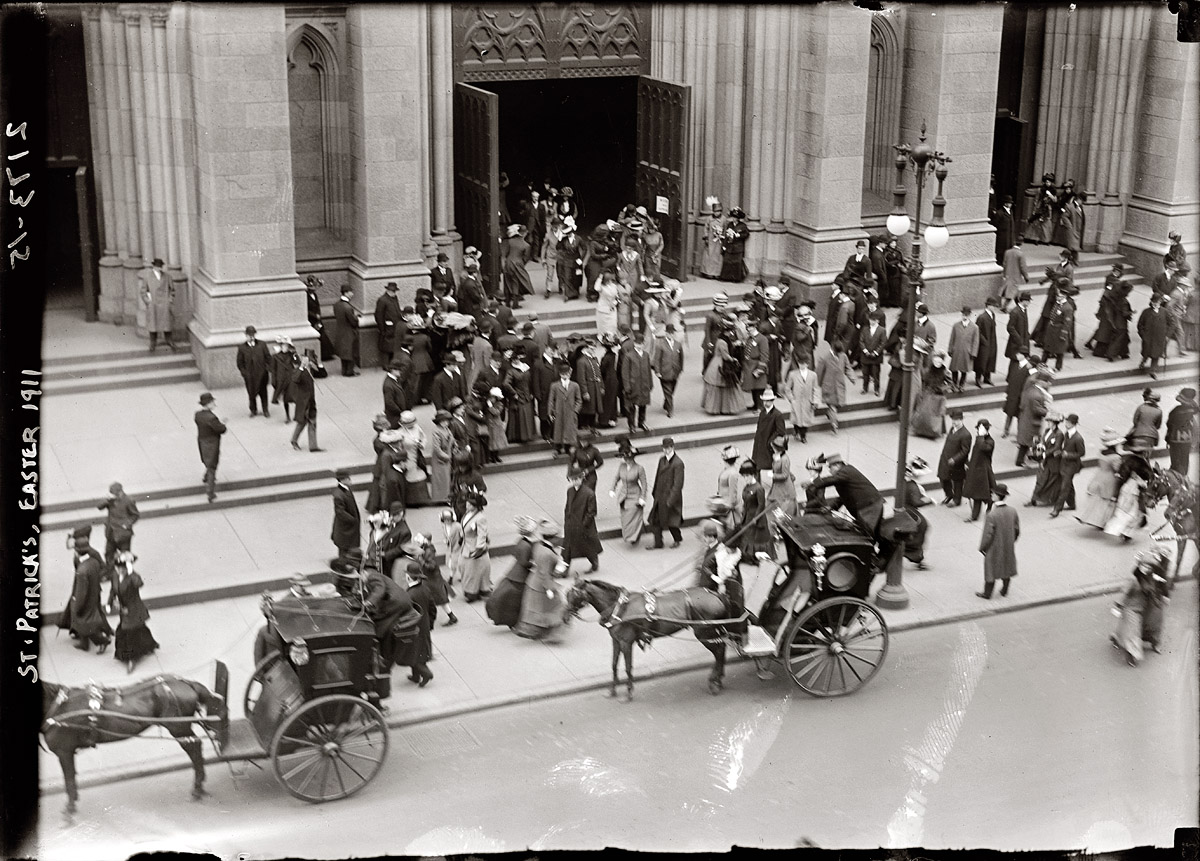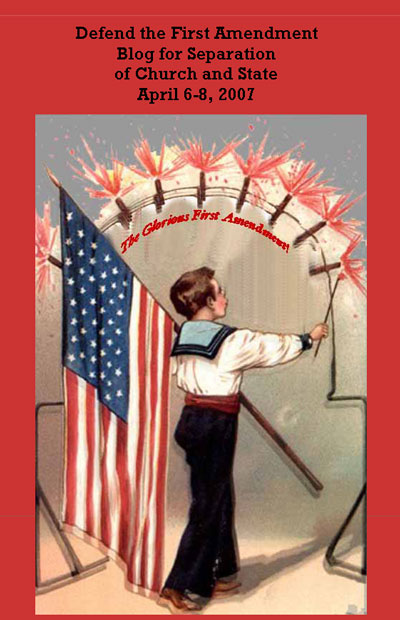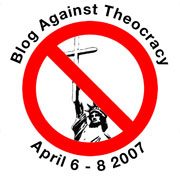Easter 1911, St. Patrick’s Cathedral, New York.
Credit: Shorpy: The 100-Year-Old Photo Blog.
My partner and I went to church today. More accurately, he went to church and I tagged along. He’s a minister and works every Sunday. Easter being a big day, and him even preaching today and all, I went for moral support.
When I attend religious services, I stand and sit appropriately, out of respect. Other than that, I feel like a dog in church. There are interesting sensations: frankincense lingering from the morning service, the smell and feel of old wood, vivid colors from the sun shining through stained glass, music and the song of human voices. When it’s my choice to do so, I enjoy such experiences in my own way, without feeling that I betray myself, or disrespect those around me.
I don’t remember how old I was – 13 or 14. My parents were getting ready to goto church. I wasn’t. They asked why I wasn’t getting ready.
I’m not going to church.
Why not?
Because I don’t believe in God.
I came out to my parents as an atheist that Easter morning 35 years ago. I didn’t go to church that day, nor for many years after that. It was a moral choice for me. I did not want to act out something I did not believe.
Throughout my school years, “home room” was the first classroom assembly of the day, before classes began. Attendance was taken and announcements were made. And we recited the Pledge of Allegiance:
I pledge allegiance to the flag of the United States of America, and to the Republic for which it stands, one Nation under God, indivisible, with liberty and justice for all.
I became increasingly uncomfortable with following this ritual. In 1975, my senior year of high school, I decided to stop standing for the recitation of the Pledge. When challenged, I gave my reasons: I didn’t believe it. I didn’t believe in God. I didn’t believe that there was “liberty and justice for all.”
This precipitated intimidation and harassment to get me to comply. Other faculty and administrative staff came to home room to question me, and stand and glare at me while I sat during the pledge. Other students in the classroom shoved my desk and called me “godless, commie fag” (though they could not have known how technically accurate that was, since I wasn’t out yet). Word got out. I was physically threatened in the hallways between classes.
I knew it was my right to refuse to stand. I never discussed the First Amendment. I wasn’t refusing to stand just to make a point. I simply did not want to be compelled to act in hypocrisy to my beliefs and feelings. I didn’t think it was right.
Faculty and staff gradually relented. Harassment from other students continued sporadically. I don’t remember how long this went on before another student, a friend of mine, also refused to stand. She was also challenged, but she was not physically harassed or threatened as far as I know. Another day, another student refused to stand. By the end of the school year, the morning Pledge had been abandoned in my home room class. I assume it continued in others.
I didn’t learn until much later that the phrase “under God” was added just four years before I was born.
Related posts:
- Blog Against Theocracy, March 28
- Poem: Speak for Yourself (Blog Against Theocracy #1)
- Blog Against Theocracy #2: Childhood
Links:
Technorati Tags: blog against theocracy


